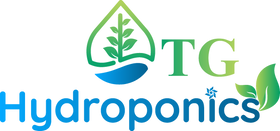Description
The Growth Technology Isopropyl Alcohol (IPA) is designed for oil extraction from herbs and has a purity of 99.9%. It can also be used in the process of making a Hand Sanitizer.
The process of organic oil extraction with GT Isopropyl Alcohol
Commercially, essential oils are made in a two-step solvent extraction process. In the first step, hexane or supercritical carbon dioxide is used to extract oils into a product known as a “concrete”. This contains the concentrated extract full of waxes and fats, as well as the fragrant material from the plant. The concrete is then mixed with another solvent such as ethanol, which serves to extract the aroma and oils of the material. This product is known as an absolute. Solvent extraction is used for jasmine, tuberose, carnation, gardenia, jonquil, violet leaf, narcissus, mimosa, rose, and other delicate flowers. Absolutes made via solvent extraction have an extremely low concentration of solvent residue, approximately 5 to 10ppm. Absolutes have therapeutic value and are often used for psychological purposes and for animals, particularly horses. Many therapists use absolutes, such as rose absolute, jasmine, and tuberose, as a part of their aromatherapy.
Making Essential Oils with IPA
Follow these steps to make essential oils. Stay in a well-ventilated area while using the GT IPA and make sure there are no naked flames or cigarettes around.
- Break the flowers and plant material into small pieces and put them inside a glass jar
- Cover them with the ethanol
- Store in a dark place for one week, shaking the jar every day
- After one week, filter the liquid using a coffee filter
- Press the last drops of ethanol out of the plant material
- Evaporate the alcohol by pouring the filtered liquid onto a plate and keeping it in a temperature-controlled and ventilated place for up to 10 days
- Store the liquid in an essential oil jar with a dropper
Repeating the process by taking the flowers and plant material from step 5 back to step 1 will increase the extracted oils.
Payment & Security
Your payment information is processed securely. We do not store credit card details nor have access to your credit card information.
Estimate shipping
Customer Reviews
Top-notch stuff. You can feel the quality. It's a proper piece of equipment that's built to last.
I'm chuffed to bits with this purchase. It's made my grow so much more enjoyable. Cheers!
This is a fantastic product. It's made a huge difference to my plants. Highly recommend.
This is a ripper! Works exactly as advertised. The results are already showing. Very impressed.
This thing is a beast! Solid construction and performs brilliantly. Definitely a five-star product.
So stoked with this. It's made everything so much easier. The plants are loving it.
Couldn't ask for better. Great product, great price, and great service. What more could you want?
This is a game-changer. My setup has never been more efficient. Highly recommend it.
Top-notch stuff. You can feel the quality as soon as you take it out of the box. Works perfectly.
I'm chuffed to bits with this. It's made a huge difference to my garden. The results are amazing.




